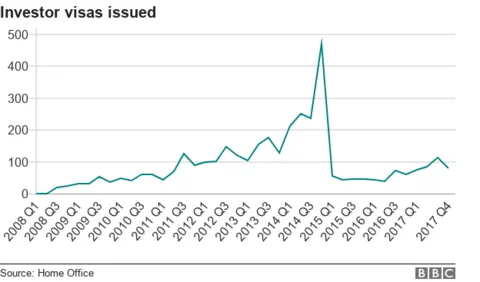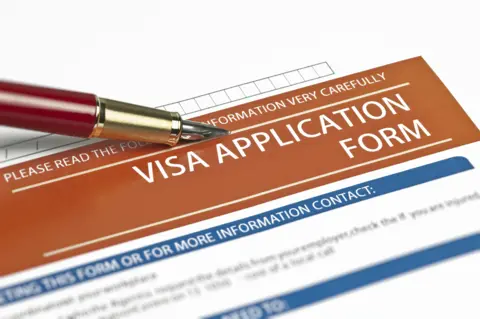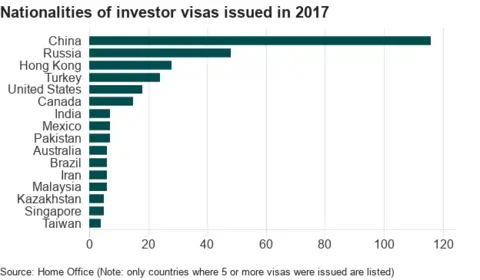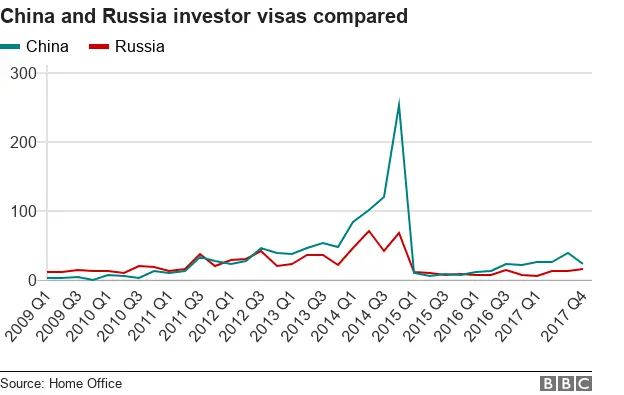Abramovich: What's an investor visa?
 Reuters
ReutersChelsea football owner Roman Abramovich has faced delays in renewing his UK visa. Reports suggest his investor visa expired three weeks ago. But what are these visas and who is entitled to one?
For wealthy individuals, an investor visa - or Tier 1 (investor) visa to give it its official name - can be an attractive route into the UK.
It was created in 2008 to encourage very rich people from outside the EU to invest in the UK.
To apply, the individual must be prepared to invest at least £2m in the country - usually in government bonds or shares in listed companies - within the first three months of arriving in the UK.
There are other requirements, such as having a UK bank account and "good character".
If successful, the visa lasts for three years and four months - but it can be renewed for an extra two years.
After five years, the individual can apply for settled status in the UK - in other words, indefinite leave to remain in the country.
Since 2011, the more the investor shells out, the quicker they may acquire settled status.
If they put in £10m, for example, they can apply for settlement after just two years.
When it made this rule change, the government said it would "encourage the brightest and the best to locate to the UK".

How many are issued?
In their first few years of existence, investment visas were very popular.
In 2009, 153 people acquired a visa by this route. And the numbers peaked at 1,172 in 2014.
But in November 2014 the minimum investment threshold doubled, from £1m to £2m.
And investor visa applications dropped significantly.
 Getty Images
Getty ImagesThe decision to double the investment threshold came after a 2014 Migration Advisory Committee (MAC) report found the existing investment level was "not of great benefit to the UK".
This was because - according to the MAC - the investor will probably sell their bonds once they obtain settlement.
In 2015, applicants were required to have a UK bank account, which led to even fewer people applying.
But since then, the numbers have slowly started to rise.
Last year, Chinese nationals secured the highest number of visas, at 116. Russian nationals were given 48.

Together, Russia and China accounted for 46% of the investor visas issued in 2017.
China and Russia have received a similar number of visas since 2009, but the data also shows a dramatic spike in investor visas given to Chinese nationals before the investment threshold was doubled at the end of 2014.

Nichola Carter, an immigration lawyer at Carter Thomas, says that after the 2014 change, investors saw the UK as a much less palatable place to invest.
But further rule changes may depress the numbers further.
In January 2018, the Home Office published new guidance, saying those on points-based visas - including investor visas - could spend a maximum of 180 days outside the UK in any 12-month period.
And this could make it harder for investors to secure settled status in the UK.



